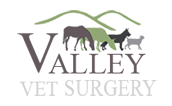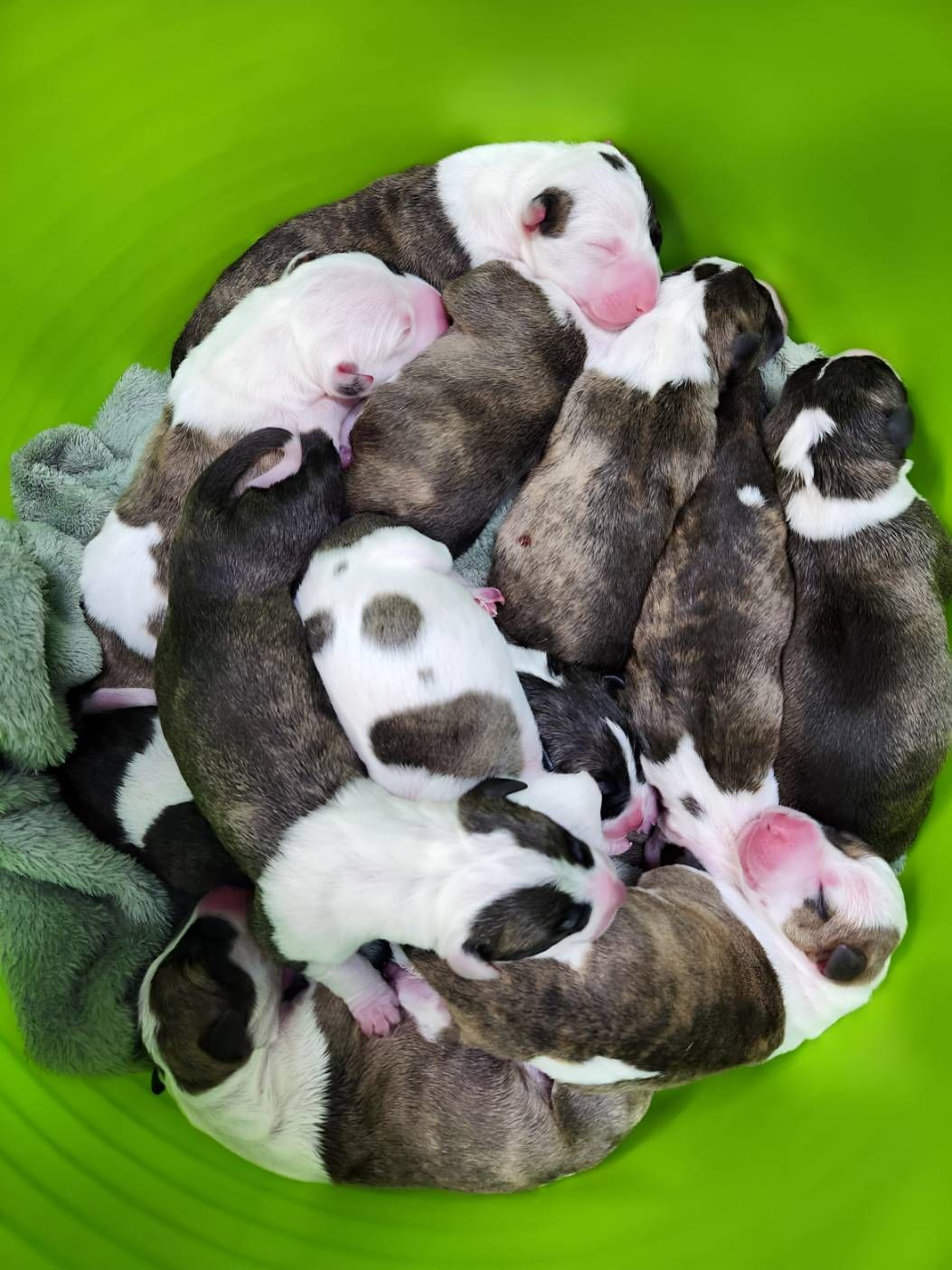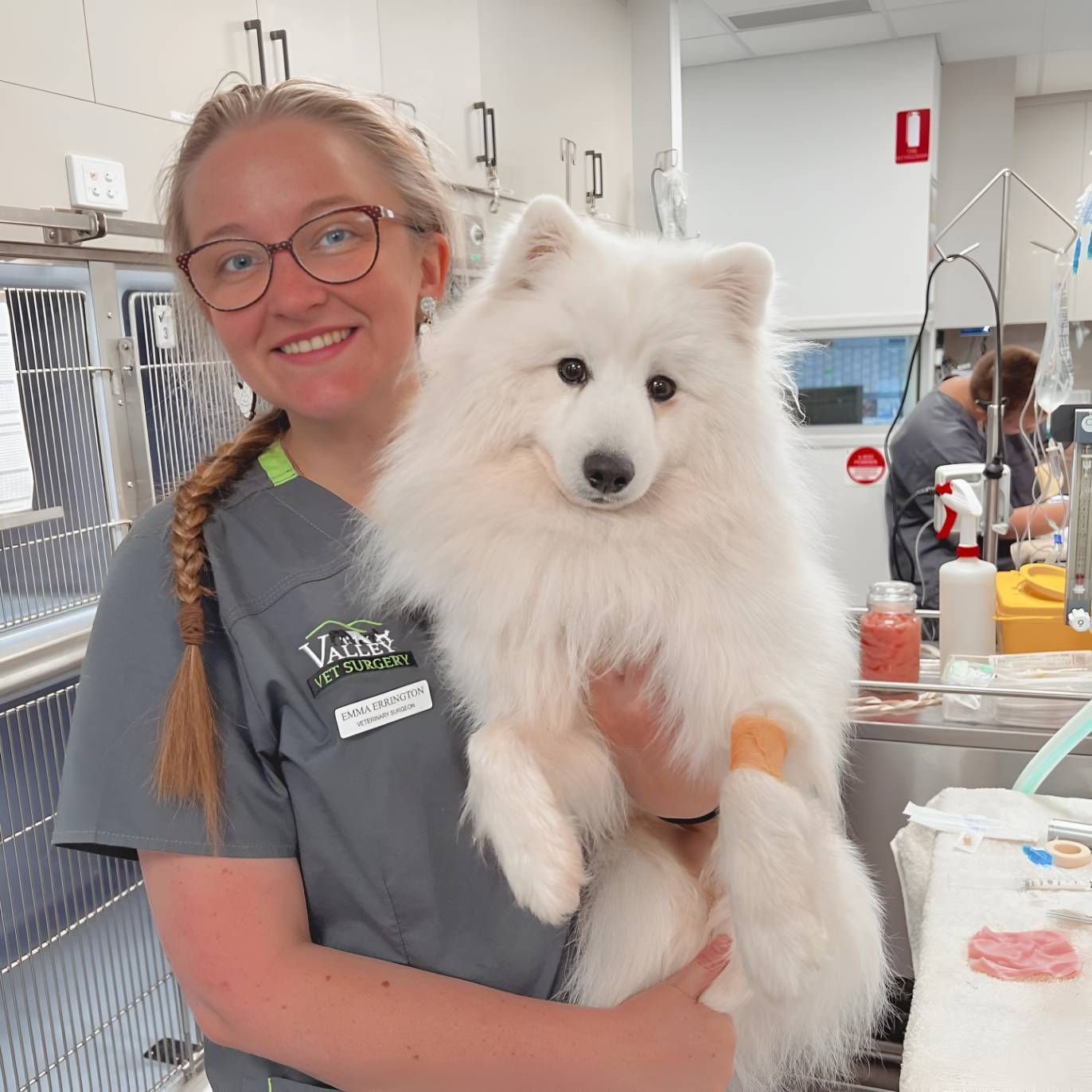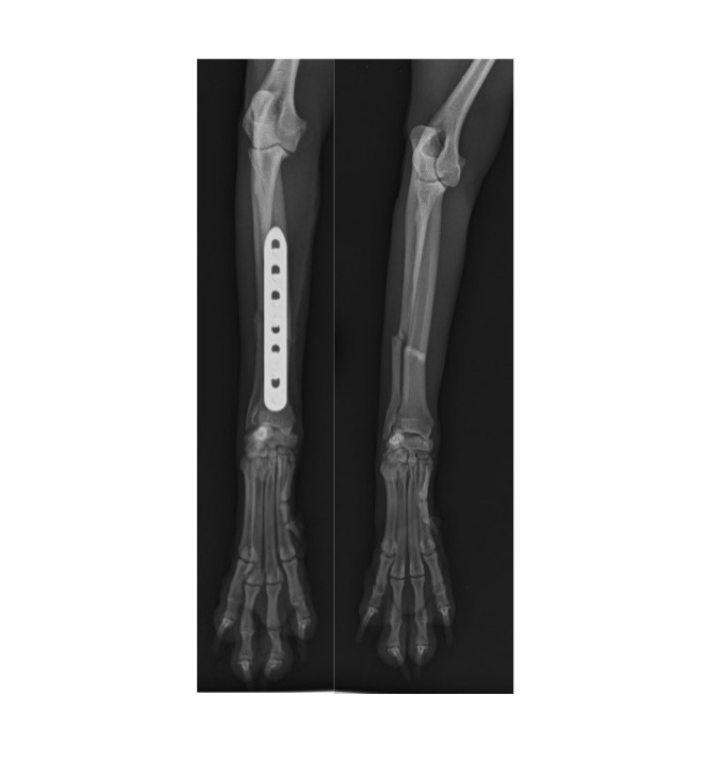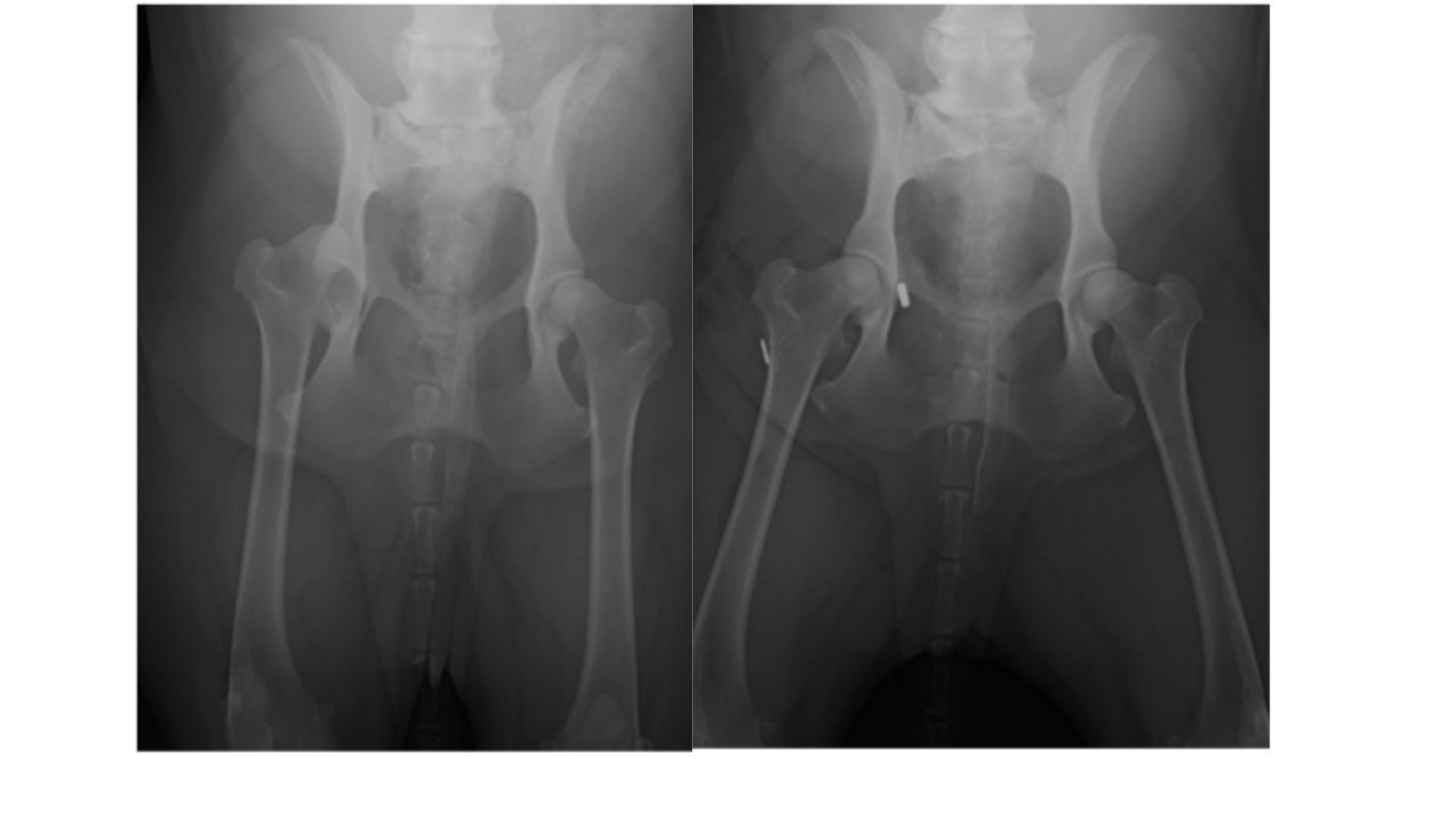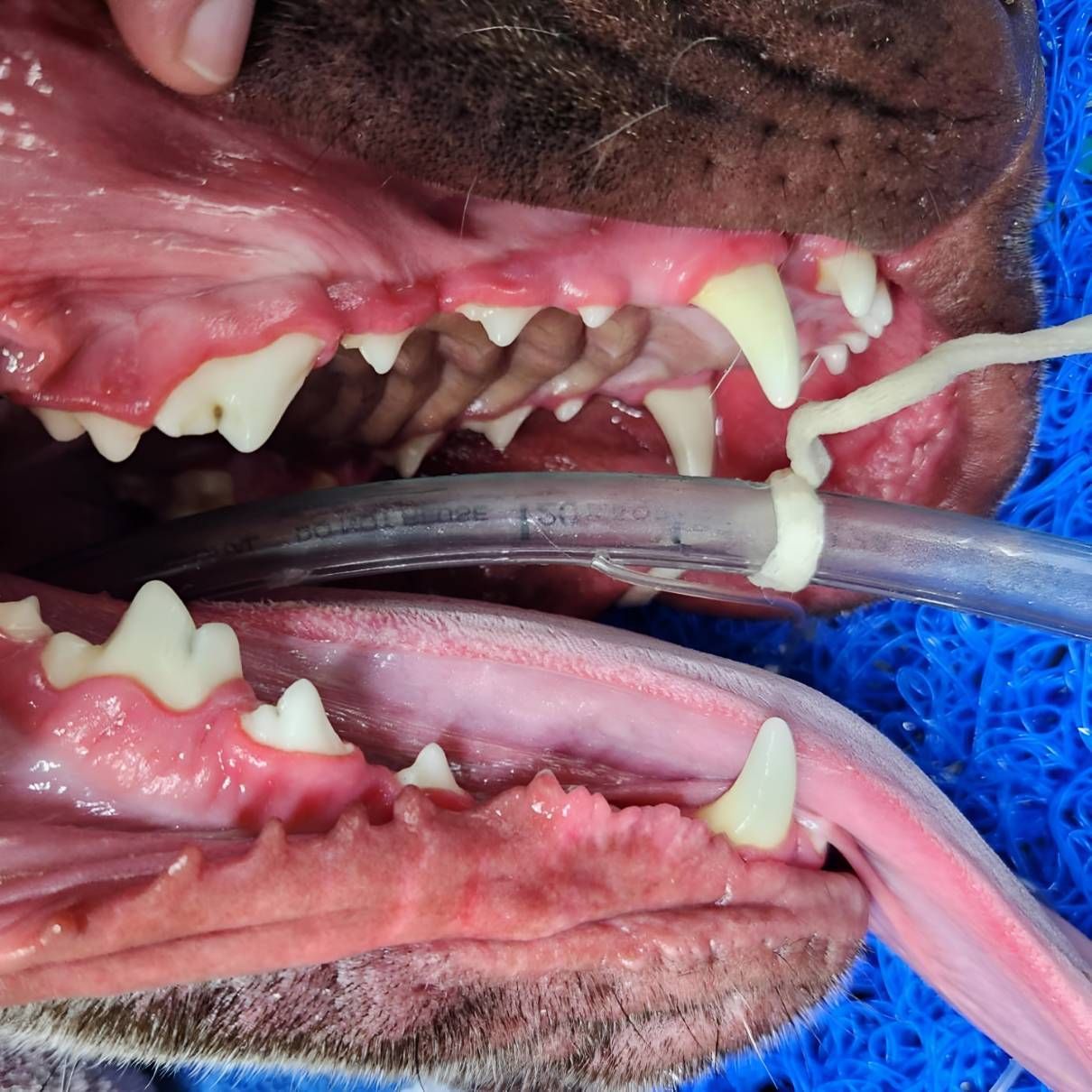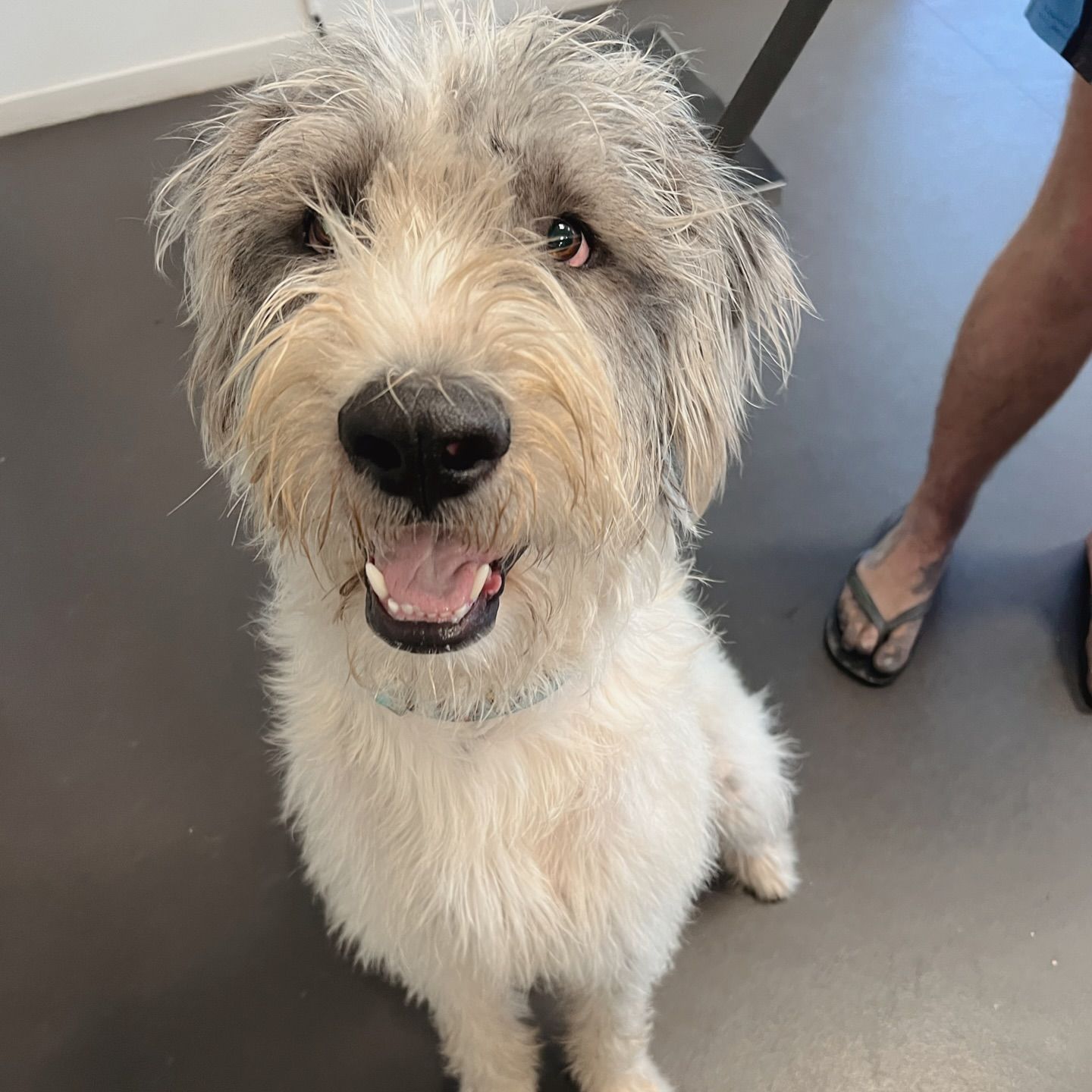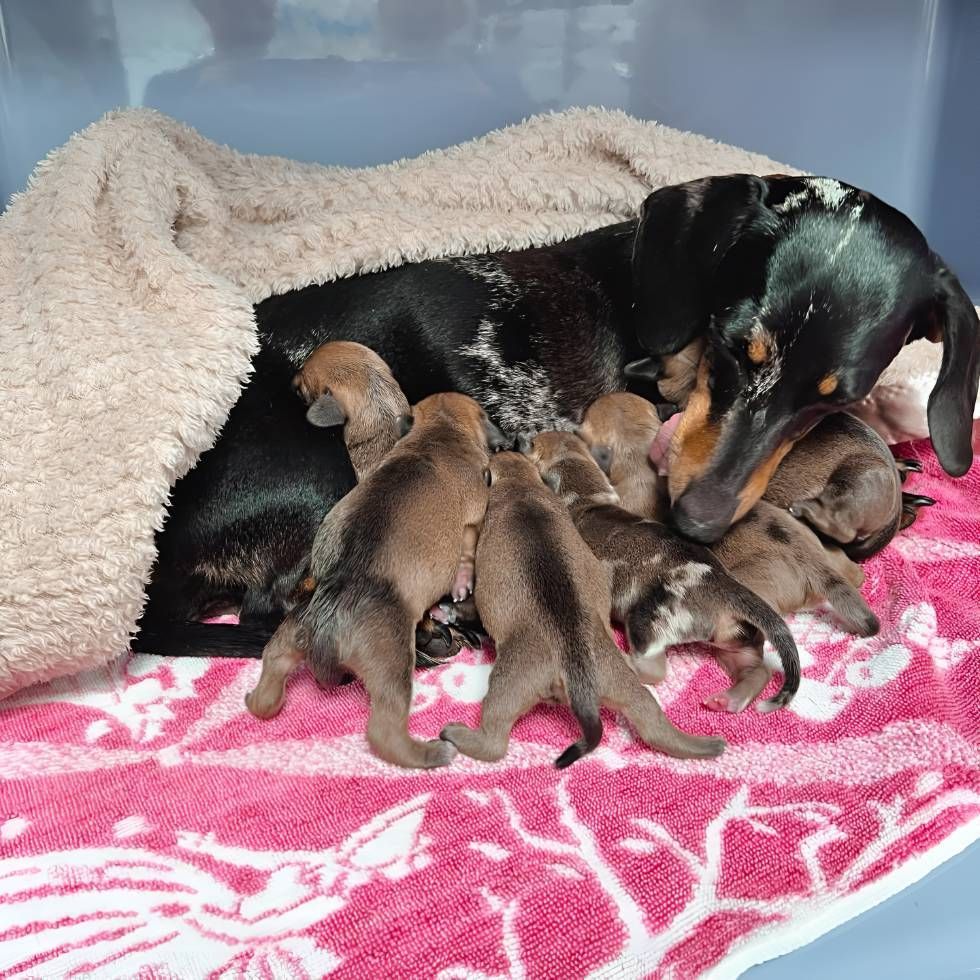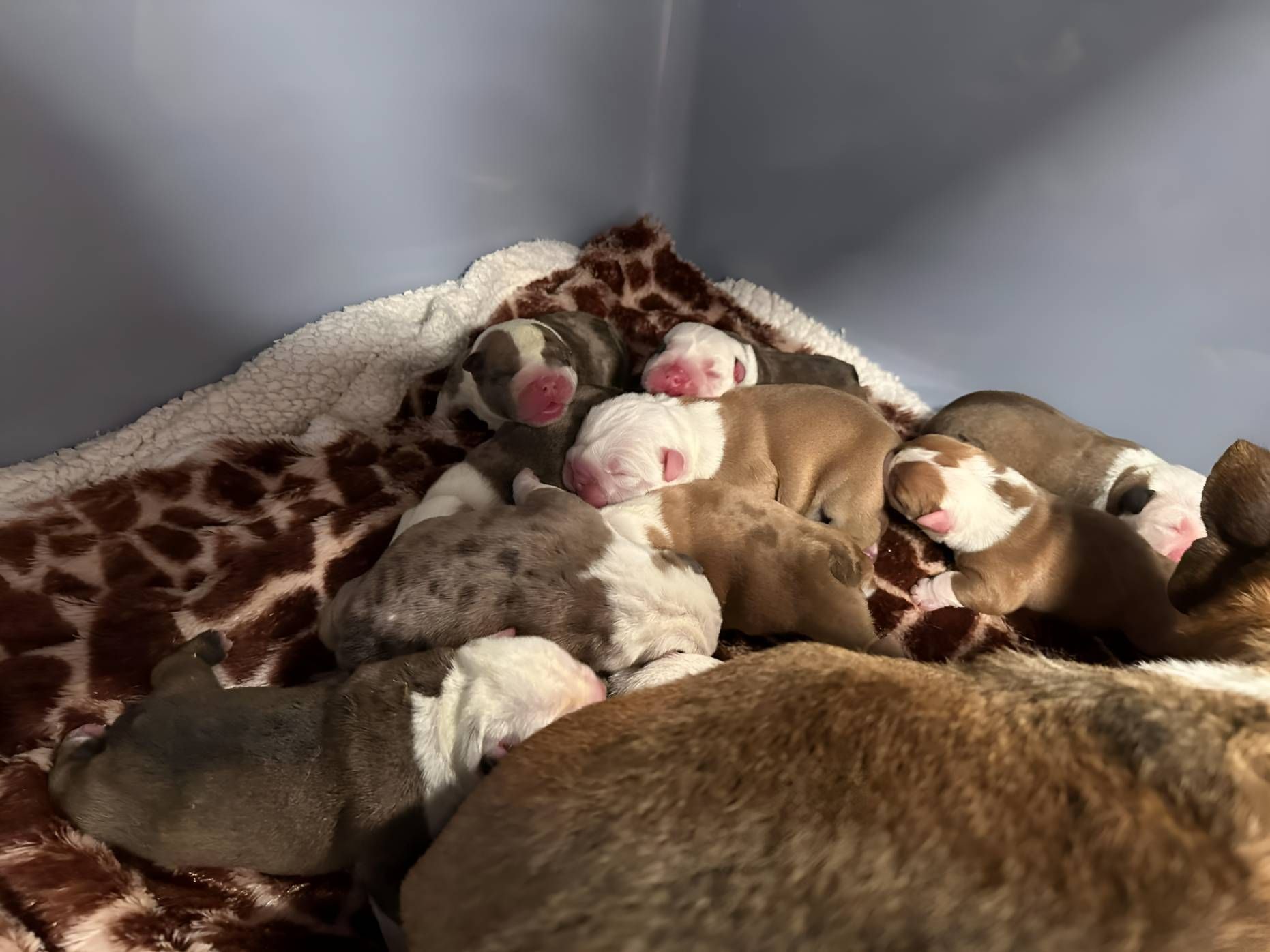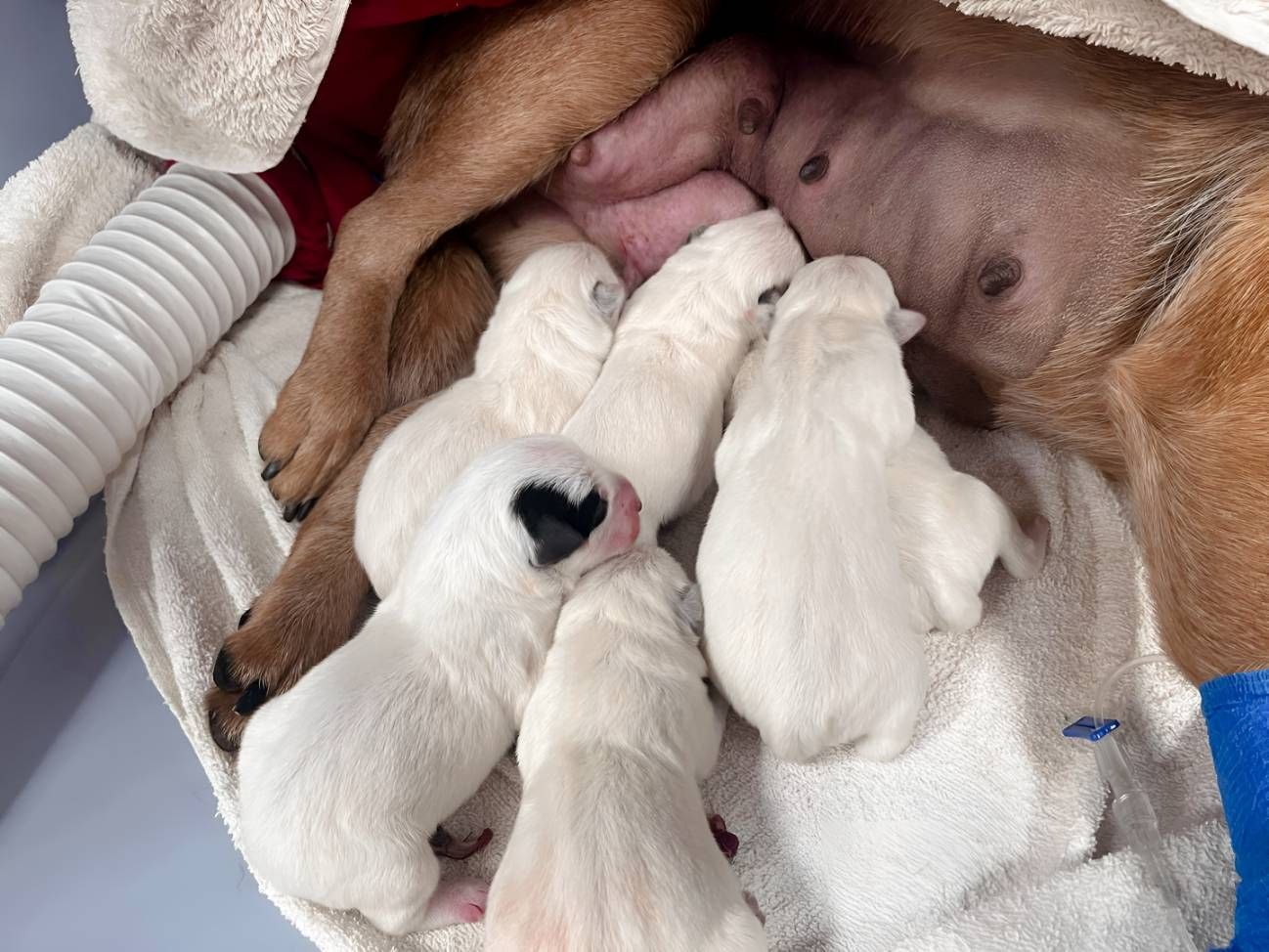Pet Surgery
Surgical Care for Pets
Valley Veterinary Surgery offers a wide range of pet surgery services at our Marian, Walkerston and Mackay clinics.
Our team performs general procedures such as desexing, wound repairs, lump removals and abdominal surgery.
We also provide orthopaedic surgeries, including treatments for cruciate ligament disease, TPLO, fracture repair and joint conditions. Digital radiography is available to help identify issues affecting bones or internal organs, supporting accurate surgical planning.
Our on-site pathology lab allows for timely blood tests, urinalysis and other diagnostics, helping to guide treatment decisions. For more advanced cases, external testing is also available.
In addition, we support canine reproduction through services such as pregnancy care, ultrasounds and caesarean sections.
To make an appointment, phone Valley Veterinary Surgery on .07 4959 2099
Family Owned & Operated
Over 20 Years of Pet Health Care
Three Convenient Locations
Small & Large Animals
Book an Appointment Today
Need to save time? Book Online! Book your pet in for a vaccination or consultation in Marian, Mackay or Walkerston.
Surgery
Our surgery performs both routine and complex procedures, utilizing state-of-the-art equipment for surgery and anaesthetic monitoring, ensuring your pet’s safety during their procedure.
Routine Desexing: We recommend desexing dogs and cats at 5-6 months to prevent behavioural and medical issues, and to avoid unwanted litters. Desexing does not alter personality but may help reduce aggression and prevent undesirable behaviours. It also does not cause weight gain, though pets may require less food post-surgery. Desexing can be done before the first season for females to prevent health issues, such as mammary cancer. Pain relief is provided before and after the procedure.
Soft Tissue Surgery: We perform a range of soft tissue surgeries, including caesarean sections, lump removals, wound repairs, skin grafting, and abdominal surgery.
Nature's Symphony
Orthopeadic Surgery
At our Marian surgery, we’re proud to offer orthopaedic surgery procedures, thanks to our fully stocked Orthopeadic kits allowing us to perform procedures that often require referral.
Fracture Repairs
When injuries occur, timely intervention matters most. Our team can perform emergency fracture repairs often within just 24 hours of the injury. If specialised equipment is required, we order it promptly typically with a 1–2 day delay during weekdays. While we await the gear, your pet remains safely hospitalised with pain relief and attentive care throughout.
TPLO Surgery (Tibial Plateau Leveling Osteotomy)
For dogs with torn cranial cruciate ligaments (the equivalent of an ACL tear), we offer TPLO surgery, a commonly recommended procedure to restore knee stability.
- TPLO works by cutting and rotating the top segment of the tibia (shinbone) to correct its angle, then securing it with a plate and screws
- This changes the biomechanics of the joint, allowing t he dog to bear weight normally without relying on a damaged ligament
- TPLO is celebrated as the gold standard for cruciate ligament repair, offering excellent long-term outcomes, faster recovery, and high return-to-function rates
Nature's Symphony
Nature's Symphony
Hip Toggle
When trauma causes hip dislocations, a Hip toggle procedure offers a reliable surgical solution:
- The technique involves drilling tunnels in both the femoral head and hip socket, then passing a synthetic ligament (toggle rod and suture) through them to stabilise the joint
- This mimics the natural ligament’s function and secures the femur in place, often allowing immediate post surgery weight bearing and restoring normal movement
Our veterinarians are always happy to receive referral from other locations for these procedures. In most cases, our veterinarians would perform new radiographs to assist with diagnosis and allow the best possible planning for the procedure that is required.
Dentistry
Just like humans, pets need dental care to maintain their overall health. Dental disease starts with bacteria buildup in the mouth, which, combined with food and saliva, forms plaque that turns into tartar. Without proper care, this can lead to periodontal disease, causing pain, tooth loss, and potentially heart or kidney issues.
Signs of Dental Disease:
- Yellow-brown tartar around the gums
- Red, inflamed gums
- Bad breath
- Difficulty eating or chewing
- Pawing at the face
- Excessive drooling
- Pain or bleeding when touching the mouth
If you notice these signs, schedule an appointment with our veterinarians. Early intervention can save your pet’s teeth.
Preventing Dental Disease
- Brush your pet’s teeth daily using pet-safe toothpaste
- Feed raw meaty bones or dental diets
- Use dental toys, chews, or teeth-cleaning biscuits
- We offer prescription diets with a satisfaction guarantee
Professional Dental Cleanings
A professional cleaning, similar to a human scale and polish, requires general anesthesia as pets can't sit still for cleaning. Our veterinarians will assess your pet's dental health and determine if extractions, antibiotics, or anti-inflammatories are needed. After the cleaning, we'll provide advice on maintaining dental health to avoid future issues.
Radiography Services
At Valley Veterinary Surgery, we use a high-quality digital radiograph machine to examine your pet’s internal health. Radiographs help diagnose a variety of conditions affecting both bones and soft tissues.
Radiographs are safe for your pet and can be done with a light sedative to ensure they remain calm and relaxed.
Bone Conditions: Radiographs can detect fractures, osteoarthritis, bone cancer, cruciate ligament ruptures, spinal issues, and dislocations.
Soft Tissue Conditions: They are also useful for diagnosing heart enlargement, pneumonia, cancer, stomach or intestinal foreign bodies, kidney disease, bladder stones, and constipation.
What to Expect: Most pets are admitted for the day to have their radiographs taken, unless it's an emergency. We ask that your pet be brought in unfed, as they may need sedation or anaesthesia for the best quality images. After the procedure, we will contact you to discuss the results and treatment plan based on the radiographs.
Pathology
At Valley Veterinary Surgery, we offer on-site laboratory testing for quick results, allowing us to diagnose conditions like kidney and liver disease, infections, diabetes, and certain cancers. Common tests include blood work, urinalysis, and faecal exams.
Our in-house lab also supports your pet’s safety before surgery by checking liver and kidney function. Regular tests, especially for senior pets, can detect issues early, improving long-term health. For specialized tests, results may take up to 14 days. We’ll keep you informed and discuss the best treatment options for your pet.
Canine Reproduction & Pregnancy Care
At Valley Vet Surgery, we provide comprehensive care for all stages of dog pregnancy, supporting your canine companion throughout this important journey. Our team offers tailored advice and diagnostics, including pregnancy ultrasounds, to monitor the health and progress of your dog and her puppies.
In addition to canine reproductive care, we offer other services to keep your pets healthy, including microchipping, parasite prevention, and weight management. Our team also provides consultations on nutrition and overall health to support your dog’s well-being during and after pregnancy.
Whether you’re a first-time breeder or experienced in canine reproduction, we are here to assist with every step of the process.
During Pregnancy
Pregnant dogs should stay active with moderate exercise. In the first 4 weeks, maintain normal food intake. From weeks 5-8, increase food by 20-50% based on the dog’s appetite. Consider feeding premium puppy food from week 6 until weaning.
Preparing for Birth: The normal gestation period is 63 days. Set up a secure, comfortable whelping box (24"x24" for small dogs, 40"x40" for large dogs) 1-2 weeks before birth. Help the dog get used to it by feeding her in the box.
Signs of Labor: 1-2 days before delivery, a dog’s temperature drops. She may become restless, stop eating, and urinate more frequently. A whelping box will help reduce anxiety.
Labour & Delivery: True labour starts with straining, similar to a bowel movement. If delivery doesn’t progress after 45 minutes of straining, call a vet. Puppies should be born head-first, and the mother typically breaks the sac. If she doesn’t, clean the pup’s nose and mouth to start breathing. Healthy pups should begin nursing immediately.
Complications
Uterine Inertia: Labor slows or stops. This is more common in small breeds or anxious dogs. If no contractions occur within 3 hours, call a vet. Minimise stress and distractions to prevent it.
Eclampsia (Milk Fever): Caused by low calcium levels, leading to symptoms like nervousness, hyperventilation, and convulsions. Seek immediate vet help if suspected.
After Delivery: The mother should care for and nurse the pups. Return to normal eating within 24 hours.
